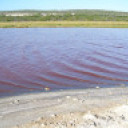House prices


Hi Andy been out of action for a week......do you know where Govts get their money from...they have to borrow thru the bond market.......??
Before the Pandemic Australia had one of the lowest borrowings relative to our GDP......we are still doing OK as we went from 18% and nearly doubled that figure over the last year..
The USA was at about 80% of GDP , now a 120%......which means tax payers $'s pay the interest.....at the moment lowest interest rates , but when Inflation hits , the interest rates should go up , which means Govts have to payback much more money...
At the moment countries are giving money away ......to try and stop recessions/depressions.....so we have a false economy.....so with negative gearing , supa low interest rates , and fear that a pandemic/lockdowns will come back...there has been a quantum shift in House prices and rentals as people with the resources now all want to live on the coast....pretty scary stuff to see whats happened here with prices and on the 28th of March , the legislation that has protected tenants from eviction by Landlords expires......next week we will probably have more stories about evictions and the start of a social breakdown!


Sheepdog......the Government borrows money from financial institutions thru the bond market....Governments pay back interest...and if they can;t well the country is bankrupt......there's no more money available for all the bureaucrats/Social service/wages for Govt employed people.....remember Greece?


Indo...careful as there is land for sale down there , which is really going to be affected by sea level rise.....hard to get insurance for a house!


for some reason makes me think of this bit of land
https://www.realestate.com.au/property-residential+land-vic-peterborough...


Cheers Brutus, im not going to buy one anyway, i just had to ring up and make sure i wasn't missing out on a bargain, should have bought one down there years ago when i first noticed it was cheap...still real cheap down 90 miles beach way, but terrible waves most of the time.
I did notice there was a couple blocks right near the beach towards Narrawong that they note you cant even build on, and are just trying to sell saying you can use for holiday use bring your van down etc expect those ones are very low ground.


Indo. Maybe a composting toilet system. Urine separation, to reed bed. Not a septic system. Could be a loophole.
With a grey water tank with irrigation.


Gold rush on land currently, come back to this comment when a financial crisis bigger than the last few hit within 12~24 months.




@cd
Yeah i did think of that possible option, but it's just too risky, even if council say it's okay reality might be different when you actually try to go ahead and do it, and then your stuck with land you cant do anything with.
I guess its like anything high risk high reward.


There already is some Approved Domestic Reed bed systems in that area .


indo re portland real estate, been keeping tabs on it on and off for 10yrs.
housing there is way way overpriced, most are wooden or fibro on stumps in a small town with same facilities as before smelter built.
the polution from smelter (fluorides) is bad.
the ppl who work there are re investors who rent out to poor ppl and are the main reason for overvalued re.
if re prices dropped by 30% buy, otherwise you are just encourageing your new bff re agent to up the price.
ps portlands a top place, i built the smelter took 2yrs...happy days.


no economist but the only way i see them paying off the huge covid debt is printing money. its started already. sydney/melbourne may come off at the top a bit but no crash elsewhere i dont think


of course we will see.
There are mainstream journos who have now spent their whole careers saying the house price correction was just around the corner.
My view: god only made so much coastal or liveable regional real estate in Aus and it's only going to get more not less valuable over time in a stable, prosperous western democracy.


FR, yeah it's hard to see the longterm trend going any other way without major intervention. Room for short term peaks and troughs in that though.
I'm just glad I managed to get in when I did... From what I've been hearing, things have gone up 30% round here since then!


last 25 years if I had a dollar for every time I've heard: yeah I reckon correction is happening , will drop by 30%, I'd be living in a mansion at Wategos.
meanwhile a small place east of the coast road that sold for 189000 is now worth 1.3million.
it ain't going backwards fellas.


Do house prices ever really go down, or do they just plateau?
https://www.savings.com.au/home-loans/australian-house-prices-over-the-l...
There's some good'n pretty graphs in this article but some broad analysis indicate:
In inflation adjusted dollars, house prices are at or near all time highs. In 1970, an average house in Sydney cost around 20% of what an average house costs today. In other words, the ~$1.1m sale price of an average Sydney house today would buy you roughly 5.2 houses back in 1970. The trend is similar, though often not as significant, in all capital cities.
The trend is similar if we look at average annual income as a proportion of average house prices. In 1970, the average Sydney house cost 4.5 times average pre-tax income. In 2020 it was 12.2 pre-tax income.
Even though house prices are at or near all time highs, in pretty much all cities, mortgage payments are NOT at record highs. The reason is that interest rates are unprecedentedly low. If house prices continue to grow, or interest rates go up again, mortgage payments are likely to become unsustainable, particularly in Sydney.
Population growth doesn’t seem to account for the increase. For example, Sydney’s population has grown by 70% in the last 50 years and its average house price has increased by 520% after accounting for inflation. Perth, on the other hand, has seen a population growth of roughly 300%, but its house prices have only increased by 260%.
And I'll add one more. Pandemics push up the price of houses, especially along (but not limited to) coastal locations...


hahaha...we have toi resolve that bet in it's entirety.
This is the way I see it.
I said we wouldn't be talking about Covid a year from today (last March).
Thats a clear loss to me.
I said coastal real estate wouldn't drop a cent because of the pandemic.
Thats a clear win to me.
I said the outcomes from Australia wouldn't be as bad as the last really bad flu season.
In terms of case numbers and fatalities they weren't but in terms of economic impact and the result of the pandemic on the world generally I think we can call that one a tie.
So, dead heat.
Anyone else see it differently?


A duel is in order...at 10 paces.....bugs bunny and yosemite sam......but whos who


Update to amount of expats who've come home in COVID from p11 of this thread - YEP, it's in the range of 500,000.
https://www.smh.com.au/national/lack-of-empathy-and-sympathy-formerly-st...
https://www.theage.com.au/national/victoria/brain-gain-half-of-australia...
Crush loading goes some way to explaining a) house prices, b) used car prices and c) why hotel quarantine must stay and we won't be doing this in the desert.
So there you have it. Keep your eyes peeled for the next "40,000 Aussies waiting to come home story" lol - like said before, that might be just those who are currently registered to do so




"In effect, the RBA has pulled out the pin on a slow grenade."


damned if you buy. damned if you don't.


It's always hard to know what to believe with these predictions they seem to be wrong just as much as they are right, but that article does make sense.
Would be scary to be borrowing money now based on current interest rates to buy a house.


RBA holds rates at 0.1%.
This could equally go up in the 'Jokes' thread.
Glass half full version is at least they haven't set rates negative.


https://theconversation.com/why-the-return-of-high-inflation-can-no-long...
https://theconversation.com/please-no-more-questions-about-how-we-are-go...
two good articles i thought out today - both of which make sense....and both once again highlighting the fact that not one farkin so called expert actually has a clue about what will happen.


So much accepted wisdom sitting on shaky foundations.


yep. can you imagine any other industry or area of knowledge operating in such a 'punt' fashion.


From the article above: "In response, Stiglitz argues that if inflation rises, the Federal Reserve will simply increase the short-term interest rate as it did in the past."
Yes and if they increase short term interest rates asset markets will crash, people with big mortgages will default and there will be a massive recession.


doubt it.
there's way more slack in the mortgage market with rates at record lows than expected.
Banks have been way more prudent with lending than prior to GFC.
Anyone who got a mortgage prior to GFC or even since has been the beneficiary of windfalls from record low interest rates.
We've got a long way to go to even get back to historically normal rates, let alone anything "high".


If you're a property owner you've had a double windfall: not just record low rates but record high asset prices.
Actually triple windfall, favourable tax treatments as well.
The nett effect is asset holders, investors and home owners are less leveraged, not more leveraged than prior to GFC.
The wealth creation has been immense. So much cream.
To even touch the sides of it there would have to be a major, major crash.
For context.
In the last 12 months we've had a Stockmarket crash, biggest recession since the Depression and it didn't touch the sides.
In fact, it slammed the foot harder on the accelerator.


@freeride. " doubt it". I hope you are right. The risk is that we are in the midst of an asset price bubble and the Fed and the central bank would find it very hard to raise interest rates without bursting the bubble and creating a deep recession. So what do they do if inflation returns?
"asset holders, investors and home owners are less leveraged". That might be true in relation to the current market value of the financed assets (I will take your word for it) but in absolute terms people are generally way more leveraged especially the ones who are buying into the markets at current or recent levels so again we can't afford to burst the bubble.
"In the last 12 months we've had a Stockmarket crash, biggest recession since the Depression and it didn't touch the sides." I think it's still playing out but time will tell. No-one knows how it's all going to end up. We are in uncharted waters I reckon.
What will the government end up doing? Probably pump up immigration again. That seems to be their "go to" economic policy.


what would they do if inflation returns?
Inch up interest rates. Lots of room to move there before they put people under water.
Especially if normal employment levels.
Banks aren't lending to people with no jobs.


“Banks aren’t lending to people with no jobs.”
Maybe not now but in the urban mass ESE of Melbourne they were until fairly recently. Mum and Dad on welfare no problem just borrow up to 95% of the valuation. Tick tick


"Only a significant negative impact on people’s incomes from the phasing out of the jobkeeper allowance this month stood in the way of prices rising even further he [Louis Christopher, the founder of SQM Research] said.
“If the market weathers that, then we might see an intervention by the regulators to curb lending like they did in 2017,” he said.
But with the RBA giving lending standards a clean bill of health on Tuesday, there was little sign of intervention by the macro-prudential watchdog, the Australian Prudential and Regulatory Authority.
“The market will have a big green light.”"
https://www.theguardian.com/australia-news/2021/mar/02/record-low-intere...


The RBA won't change its monetary policy stance until inflation is expected to consistently edge above its upper policy band. They believe there is still too much slack in the labour market for inflation to be a concern in Australia for the next few years (https://rba.gov.au/media-releases/2021/mr-21-04.html).
If inflation does become a concern, my guess is the RBA's first step will be to remove its use of non-conventional monetary policy (quantitative easing). So it won't necessarily first "increase interest rates" via increasing the cash rate (conventional monetary policy). This first step won't be catastrophic for mortgage borrowers, asset prices or the economy, but it will be a clear signal to the market that the current low interest rate/inflation cycle has turned.
Regarding lending standards, the RBA sent a clear message to the market that it's watching what's going on: "Given the environment of rising housing prices and low interest rates, the Bank will be monitoring trends in housing borrowing carefully and it is important that lending standards are maintained." But the RBA will only change its monetary policy stance due to inflation, not lending standards - other regulatory changes will target this.
Interestingly, I wonder if Australian regulators would ever go as far as NZ has now gone by removing the tax deductibility of mortgage interest costs on investment properties (https://www.abc.net.au/news/2021-04-02/housing-boom-nz-and-australia-len...)?
However I think the reference to The Big Short above is a bit outdated. I was working as a corporate banking executive back then. A lot of lessons were learnt from the GFC resulting in lending standards, oversight and regulation evolving. The mortgage lending environment is quite different nowadays compared to back then.
I believe the real concern right now is the level of debt and potential for inflation in the US, and consequent contagion globally:
- Debt-to-GDP is now the highest it has been in history: https://www.longtermtrends.net/us-debt-to-gdp/.
- The growth rate in the M2 money supply is now also at its highest level historically: https://www.longtermtrends.net/m2-money-supply-vs-inflation/.
This also comes at a time of Biden's huge covid stimulus package. Bond markets are already factoring in higher inflation.
Other links on this www.longtermtrends.net website indicate that the US is also currently in the middle of a property market bubble that is fast approaching the level of the previous one, and is currently in the middle of a stock market bubble of equal proportion to the last tech stock bubble.
The US economy seems to be a house of cards ready to fall at any moment...


"Fancy thinking that a $650K mortgage isn’t a heavy debt load!"
Hey yo over here, thats me!
not quite but not far off...


Some expert on the radio was opining that the current price surge was partly due to 100s of thousands of cashed-up expats returning and wanting a nice house near the beach. New money entering the market.


NINJA loans
No Income No Job or Assets
That one was a beauty from pre-GFC US I think. gsco thank you for your views. I did know a head of risk management going into that time, interesting stuff. This schitt can keep going for longer than we can hold our breath in rage, so might as well enjoy it.
Here Will Emerson lays it down just how it works:


more of the same confusion
https://www.theage.com.au/politics/federal/last-kick-of-the-can-property...
she'll be right:
https://www.smh.com.au/business/banking-and-finance/banks-dial-back-covi...
and my favourite for the week:
Housing Minister Michael Sukkar last month called it a “government for first-time buyers”
https://www.theage.com.au/business/the-economy/first-home-buyer-boom-mas...


".....plans to move to split his time between Bondi and Byron Bay"
sums up northern rivers population aptly. apologies to anyone up there if they exist that isn't a wellness practitioner with a FIFO banker hubby/wife.


Sheesh, bought for $246,000 thirty years ago.
If, as some people say, house prices ideally double every ten years, then it 'should' be worth $2M.
Instead it sold for more than three times that.


Land and houses are still cheap in Kalbarri. In the mining boom prices radically increased then boom 1/3 of the fifo jobs were available and prices in kalbarri went down divided by three...now banks wont loan to anyone unless they have 40% of the total price. No rentals available though now. so maybe rent prices could increase. Im paying fuck all for a three bedroom pad with three freezers and two fridges, a pool thats looked after and gardens..its excellent...i hope it stays this way.


That Bondi house is just unbelievable.
In my mind in the past it's been, sell your house in Sydney for $1.5 mill, move up north, buy a nice place and have a fair bit of coin left over.
Now it's sell for $6.5 mill, buy maybe four properties and have enough left over to buy a 200 series and a caravan and fuck off for a big lap.
Rent the houses out for an income of three or four grand a week.
Then of course multiply this by the thousands of cashed up buyers coming into northern NSW (and other regional areas) and it emphasises the situation that's been around for a while but has now hit 6th gear.
Pivotal moment in Australian economic and social history.

House prices - going to go up , down or sideways ?
Opinions and anecdotal stories if you could.
Cheers